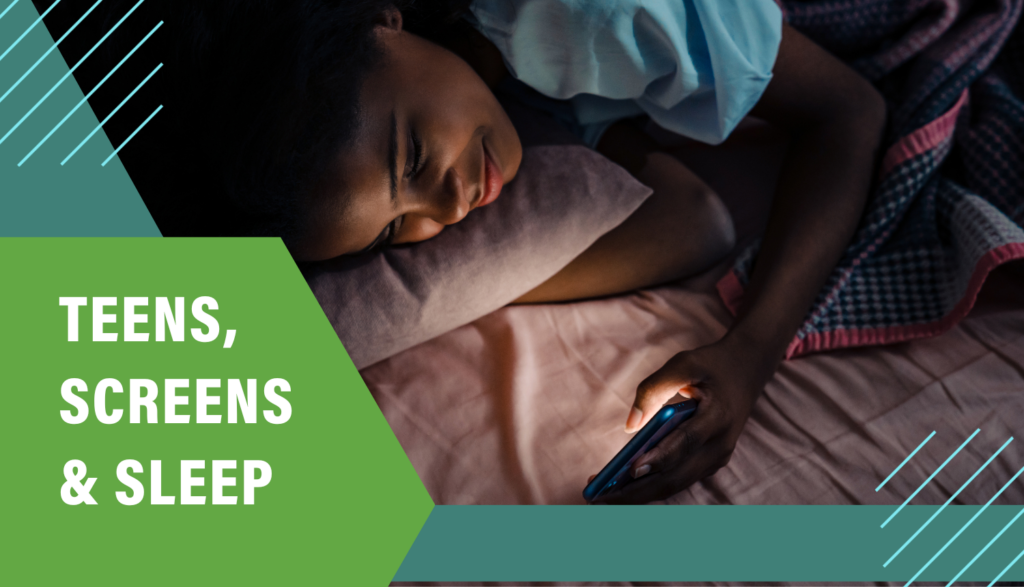We often talk about screen time as if it’s all the exact same thing. We know that too much of it is connected with all manner of problems, such as mental health concerns, shortened attention spans and obesity, just to name a few.
But social scientists continue to discover how different engagements with screens actually may have different outcomes—with some being more problematic than others.
Take teens and sleep, for instance. We’ve long known that the blue, ultraviolet light emitted from our phones has the effect of waking the brain up, of tricking our bodies into thinking it’s still daytime—even if it’s late a night. That’s why researchers in this area have long advocated that all of us—regardless of age—turn off those brain-awaking screens at least an hour before bed.
Now, new research from Penn State indicates that different screen activities have a different effect on how much sleep adolescents get. Specifically, they found that “active” online activities pursued throughout the day, such as texting, instant messaging and video games correlated with less sleep than “passive” screentime engagement (such as watching television).
Health Day contributor Ernie Mundell summarized the researchers’ core findings by saying, “For each hour they texted, messaged or gamed during the day, adolescents fell asleep about 11 minutes later. If these interactive activities occurred in the hour before bed, they got to sleep 30 minutes later, on average.”
Study coauthor Anne-Marie Chang, an associate professor of biobehavioral health at Penn State, said, “It could be that these more passive activities are less mentally stimulating than interactive activities, like texting and video game playing.”
The study, which followed 475 kids, also quantified how much time they spent, on average, engaged in various digital pursuits: 1.3 hours daily playing video games; 1.7 hours daily watching TV or videos; and about 2 hours a day texting, instant messaging or emailing friends.
Chang recognizes that these modes of engagement and communication have become deeply wired into our digital culture; because of that, it’s “so hard to put a limit on them.” But she adds, “If you’re really looking out for an adolescent’s health and well-being, then you might consider limiting the more interactive activities, especially in the hour before bed.”
The screentime battle isn’t going away anytime soon. But science continues to help us understand why that battle is important and how it may be impacting our kids in negative ways.







3 Responses
The younger you start doing something, the more time you spend doing it when you’re older, the more likely you are to be doing it when you shouldn’t be doing it, and the harder it is to quit.
A lot of parents get their children smartphones or game consoles for the following reasons, reasons I think you should take the time to address in future articles:
-“It’s the only way I can get them to stop pestering me and leave me alone.”
-“It’s the only way I can keep them occupied/out of trouble.”
-“If I don’t get them these devices, they’ll be social outcasts.”
On the issue of being a social outcast, social outcasts may not have as many friends, but they’re more loyal to the friends they do have, and they’ve made those friendships for the right reasons. Those who are most popular undoubtedly have more friends, but those friendships are very simplistic and shallow relationships.
I have a smartphone, but I’ve never watched a full-length movie or TV episode on my smartphone. That’s what I use my TV screen or my computer screen for.
Good article. It’s well worth the read.
This was a great article. As someone who has heard teens complain that their parents don’t let them have their phones at night, friends ridiculing them about it, “Your parents jut don’t trust you” etc. I think all teens who have a phone should read this article. It will help them appreciate how much their parents watch for them. I suggest Focus on The Family edit this article and publish it in Brio.